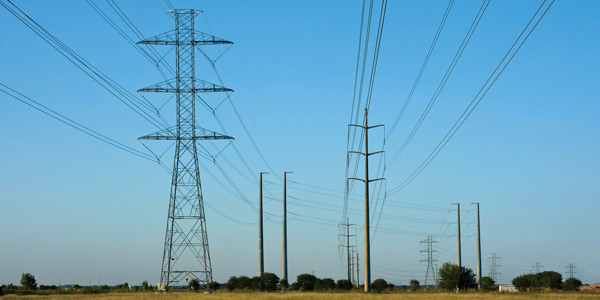ERCOT’s wholesale market performed “competitively” in 2016, the ISO’s Independent Market Monitor, Potomac Economics, said in its annual State of the Market report filed last week with the Public Utility Commission of Texas.
However, the Monitor recommended seven potential improvements to system operations and price formation in the energy and ancillary services markets. While some of the suggestions have been seen before, this year’s report included three new recommendations, all focused on improving price formation.
The first calls for ERCOT to ensure that the price of a reliability-must-run unit’s energy “reflects the shortage conditions that exist.” The report notes that RMR units are currently required to submit energy offer curves with prices equal to the systemwide offer cap, but those units may also be needed to resolve local transmission constraints in the future. The Monitor said the RMR unit’s energy offer price will likely be mitigated when the constraint is noncompetitive, resulting in its dispatch before other competitively offered units.
“In the absence of any other market changes designed to reflect the reliability needs that caused the RMR,” the Monitor said, “we believe that pricing the energy from the RMR unit such that its costs to resolve the relevant constraint are higher than the costs of other available market-based resources will establish more efficient economic signals in the ERCOT market.”
The ISO’s stakeholders have already taken steps to address RMR contracts, driven by a 2016 agreement with NRG Texas Power’s Greens Bayou Unit 5 in Houston. The contract was terminated last month. (See ERCOT Ending Greens Bayou RMR May 29.)
ERCOT’s Board of Directors has approved three protocol revision changes, including a requirement that RMR units only be procured when they have a material impact on expected transmission overloads. Other changes clarify ERCOT’s commitment process for RMR units, update the contracting and reimbursement process for RMR units and create a mechanism to claw back capital contributions from an RMR unit if it returns to the market.
The Monitor also suggests that the ISO evaluate the need for a local reserve product, such as the localized 30-minute reserve product used by other RTOs. The Monitor contends that defining such an ancillary service product would allow the real-time energy and reserve markets to price local reserve shortages and provide the revenues necessary to satisfy local capacity needs, “eliminat[ing] the need to sign out-of-market RMR contracts.”
The third recommendation asks for ERCOT to consider including marginal losses in LMPs and using a revenue-allocation methodology to address collecting more payments for losses than their aggregate cost. “Recognizing marginal losses will allow the real-time market to produce more from a higher-cost generator located electrically closer to the load, thus resulting in fewer losses,” the Monitor said.
While the Monitor lauded ERCOT’s competitive performance, it also noted an increase in negative pricing over the last five years, driven by additional wind generation and transmission infrastructure. It said ERCOT saw 131 hours of prices at or less than zero in 2016, compared with 55 in 2015 and 44 in 2014.
The Monitor also said the market’s total congestion costs were $497 million in 2016, up 40% from 2015, primarily because of transmission outages.
The report also highlighted ERCOT’s record-low average real-time energy prices — since the nodal market’s implementation in 2010 — of $24.62/MWh, an 8% drop from 2015. It said real-time prices never exceeded their PUC-mandated limit of $3,000/MWh, and breached $1,000/MWh for only 3.9 hours.
ERCOT Approves Retiring 61 MW of Capacity
ERCOT has approved South Texas Electric Cooperative’s request to retire its three gas-fired units in Pearsall, southwest of San Antonio. The units, with a combined capacity of 61 MW, will be decommissioned in August.
The co-op filed a notification of suspension of operations with the ISO in April. The Texas grid operator responded by saying the units “are not required to support ERCOT transmission system reliability” and said their operations may be suspended, effective Aug. 1.
– Tom Kleckner





